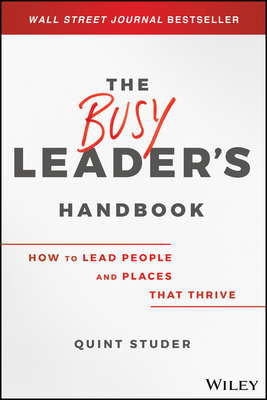First, Break All the Rules: What the World's Greatest Managers Do Differently
暫譯: 首先,打破所有規則:世界上最偉大的經理人有何不同之處
Marcus Buckingham, Curt Coffman
- 出版商: Simon
- 出版日期: 1999-05-05
- 售價: $1,020
- 貴賓價: 9.5 折 $969
- 語言: 英文
- 頁數: 271
- 裝訂: Hardcover
- ISBN: 0684852861
- ISBN-13: 9780684852867
無法訂購
買這商品的人也買了...
-
 ARM System-on-Chip Architecture, 2/e ( 美國原版)
ARM System-on-Chip Architecture, 2/e ( 美國原版)$2,730$2,593 -
 SQL 語法查詢百科 (SQL Fundamentals, 2/e)
SQL 語法查詢百科 (SQL Fundamentals, 2/e)$720$612 -
 Computer Networks and Internets with Internet Applications, 4/e
Computer Networks and Internets with Internet Applications, 4/e$980$960 -
 SQL 設計與運用範例集
SQL 設計與運用範例集$480$408 -
 Oracle PL/SQL 程式設計 (Oracle PL/SQL Programming, 3/e)
Oracle PL/SQL 程式設計 (Oracle PL/SQL Programming, 3/e)$1,200$948 -
 建構嵌入式 Linux 系統
建構嵌入式 Linux 系統$780$616 -
 MAYA 進化論 II─人物建模與設定
MAYA 進化論 II─人物建模與設定$680$578 -
 AutoCAD 2006 實力養成暨評量
AutoCAD 2006 實力養成暨評量$350$297 -
 專業 Java 整合開發工具 Eclipse 3 (Professional Eclipse 3 for Java Developers)
專業 Java 整合開發工具 Eclipse 3 (Professional Eclipse 3 for Java Developers)$560$476 -
 作業系統原理 (Silberschatz: Operating System Principles, 7/e)
作業系統原理 (Silberschatz: Operating System Principles, 7/e)$780$741 -
 鳥哥的 Linux 私房菜基礎學習篇, 2/e
鳥哥的 Linux 私房菜基礎學習篇, 2/e$780$663 -
 ASP.NET 2.0 網頁製作徹底研究, 2/e
ASP.NET 2.0 網頁製作徹底研究, 2/e$660$561 -
 ASP.NET 2.0 深度剖析範例集
ASP.NET 2.0 深度剖析範例集$650$507 -
 Fedora Core 5 Linux 實務應用 DVD 版
Fedora Core 5 Linux 實務應用 DVD 版$650$553 -
 DTP 桌上排版活用技術修煉
DTP 桌上排版活用技術修煉$520$405 -
 SCJP Java 5 專業認證手冊 (SCJP Sun Certified Programmer for Java 5 Study Guide)(Exam 310-055)
SCJP Java 5 專業認證手冊 (SCJP Sun Certified Programmer for Java 5 Study Guide)(Exam 310-055)$880$748 -
 Dreamweaver 搞不定的網頁設計效果:CSS 關鍵救援密碼
Dreamweaver 搞不定的網頁設計效果:CSS 關鍵救援密碼$520$442 -
 Ajax 實戰手冊 (Ajax in Action)
Ajax 實戰手冊 (Ajax in Action)$680$578 -
 Cryptography and Network Security, 4/e (IE) (美國版ISBN:0131873164) (平裝)
Cryptography and Network Security, 4/e (IE) (美國版ISBN:0131873164) (平裝)$1,090$1,068 -
 聖殿祭司的 ASP.NET 2.0 專家技術手冊─使用 C#
聖殿祭司的 ASP.NET 2.0 專家技術手冊─使用 C#$720$612 -
 Microsoft Windows Server 2003 R2 架站實務
Microsoft Windows Server 2003 R2 架站實務$580$493 -
 語意網技術導論 (A Semantic Web Primer)
語意網技術導論 (A Semantic Web Primer)$400$340 -
 Flash 網頁設計與動畫製作
Flash 網頁設計與動畫製作$580$493 -
 Linux 核心詳解, 3/e (Understanding the Linux Kernel, 3/e)
Linux 核心詳解, 3/e (Understanding the Linux Kernel, 3/e)$1,200$948 -
 Maya 光與材質的視覺藝術
Maya 光與材質的視覺藝術$860$731
商品描述
Marcus Buckingham and Curt Coffman of the Gallup Organization present the remarkable findings of their massive in-depth study of great managers across a wide variety of situations. Some were in leadership positions. Others were front-line supervisors. Some were in Fortune 500 companies; others were key players in small, entrepreneurial companies. Whatever their situations, the managers who ultimately became the focus of Gallup's research were invariably those who excelled at turning each employee's talent into performance.
In today's tight labor markets, companies compete to find and keep the best employees, using pay, benefits, promotions, and training. But these well-intentioned efforts often miss the mark. The front-line manager is the key to attracting and retaining talented employees. No matter how generous its pay or how renowned its training, the company that lacks great front-line managers will suffer.
Buckingham and Coffman explain how the best managers select an employee for talent rather than for skills or experience; how they set expectations for him or her -- they define the right outcomes rather than the right steps; how they motivate people -- they build on each person's unique strengths rather than trying to fix his weaknesses; and, finally, how great managers develop people -- they find the right fit for each person, not the next rung on the ladder. And perhaps most important, this research -- which initially generated thousands of different survey questions on the subject of employee opinion -- finally produced the twelve simple questions that work to distinguish the strongest departments of a company from all the rest. This book is the first to present this essential measuring stick and to prove the link between employee opinions and productivity, profit, customer satisfaction, and the rate of turnover.
There are vital performance and career lessons here for managers at every level, and, best of all, the book shows you how to apply them to your own situation.
商品描述(中文翻譯)
世界上最偉大的經理似乎幾乎沒有共同之處。他們在性別、年齡和種族上各不相同。他們採用截然不同的風格,專注於不同的目標。然而,儘管存在這些差異,偉大的經理卻有一個共同的特徵:他們毫不猶豫地打破幾乎所有傳統智慧所認為神聖的規則。他們不相信,只要有足夠的訓練,一個人就能實現他所設定的任何目標。他們不試圖幫助人們克服自己的弱點。他們始終無視黃金法則。是的,他們甚至會偏袒某些人。這本驚人的書解釋了原因。
來自蓋洛普組織的馬庫斯·巴金漢(Marcus Buckingham)和柯特·科夫曼(Curt Coffman)展示了他們對各種情況下偉大經理的深入研究所得到的卓越發現。有些人擔任領導職位,其他人則是前線主管。有些人來自《財富》500 強公司,其他人則是小型創業公司的關鍵角色。無論他們的情況如何,最終成為蓋洛普研究焦點的經理無一例外地擅長將每位員工的才能轉化為績效。
在當今緊張的勞動市場中,公司競爭著尋找和留住最佳員工,利用薪資、福利、晉升和培訓。然而,這些出於好意的努力往往未能達到預期效果。前線經理是吸引和留住優秀員工的關鍵。無論公司的薪資多麼慷慨,或其培訓多麼著名,缺乏優秀前線經理的公司將會遭受損失。
巴金漢和科夫曼解釋了最佳經理如何根據員工的才能而非技能或經驗來選擇員工;他們如何為員工設定期望——他們定義正確的結果,而不是正確的步驟;他們如何激勵人們——他們基於每個人獨特的優勢,而不是試圖修正他的弱點;最後,偉大的經理如何培養人才——他們為每個人找到合適的角色,而不是下一個晉升的階梯。或許最重要的是,這項研究最初產生了數千個有關員工意見的調查問題,最終產出了十二個簡單的問題,這些問題能夠區分公司中最強的部門與其他部門。這本書首次提出了這一重要的衡量標準,並證明了員工意見與生產力、利潤、客戶滿意度和流失率之間的聯繫。
這裡對於各級經理來說都有重要的績效和職業教訓,最棒的是,這本書告訴你如何將這些應用到自己的情況中。










